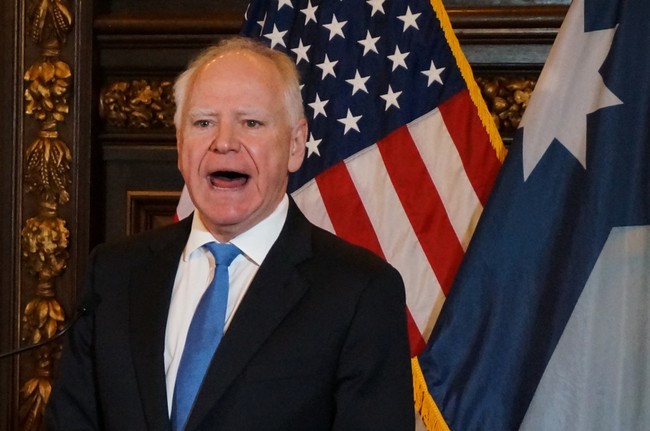Anyone who attends a university event, browses a college website, or strolls through a city park has likely heard a Native American land acknowledgment. These statements now function as the incense of the modern academy — burned at the start of a ceremony, meant to signal moral clarity, and producing the intellectual equivalent of secondhand smoke.
Arizona State University, where I teach philosophy, posts these statements on the webpages of the Sandra Day O’Connor College of Law and the Hayden Library. The library even affirms that “we are on Akimel O’odham land, and that always needs to be at the forefront of our thinking.”
Pluralism, the real kind, permits disagreement and debate. What we have now resembles stage-managed pluralism: You read the script you are handed, or you stay quiet.
The implication is clear: U.S. sovereignty becomes an open question. That is the point. These acknowledgments aim to “problematize” the legitimacy of the United States, a central goal of the academic decolonization movement.
For six years, ASU’s New College has required faculty to listen to one at the start of every meeting.
A harmless ritual? A gesture of respect? A symbolic nod?
I wondered the same — until I conducted a small experiment.
A revealing reaction
At last week’s New College faculty meeting — a meeting of state employees conducting public business — I asked a straightforward question.
“Given our commitment to diversity, may I also read a land acknowledgment of my own before each meeting?”
My acknowledgment was not provocative. It thanked the generations of settlers, farmers, builders, capitalists, and families who transformed the Salt River Valley into a place capable of supporting a world-class university. It affirmed that we serve all students and help them prosper.
I made a motion.
Discussion required only a second. Not approval. Not endorsement. Only a willingness to debate the proposal.
Not one person seconded it.
I did not ask colleagues to agree with my acknowledgment. I asked only to read it. In fact, I would gladly see everyone read their own. Let every faculty member present a statement, a grievance, or a cause they feel compelled to highlight. Why limit the practice to one perspective?
Yet the official record now shows that not one faculty member at ASU’s New College would second a motion to expand diversity.
Appearance vs. reality
The episode highlights a distinction philosophy once taught clearly — the distinction between appearance and reality. Faculty preach diversity in language that collapses into ideological uniformity. Many cannot describe a competing view without reducing it to a script: oppressed versus oppressor. Anyone who falls outside their categories becomes a threat.
My request challenged the boundaries of that framework. To the decolonization mindset, my acknowledgment represents the wrong category — heritage tied to “settler guilt” or “oppressor identity.” The ideology cannot imagine anything beyond that narrow frame.
Pluralism, the real kind, permits disagreement and debate. What we have now resembles stage-managed pluralism: You read the script you are handed, or you stay quiet.
The academic left rose to influence by praising inclusivity and toleration. Once in power, it exempts itself from those principles because tolerance, in its view, cannot extend to anyone labeled “bigot” and inclusion cannot extend to anyone lumped into the category “fascist.” Only the Marxist dialectic survives the screening.
The ideology behind the script
Some readers may think these acknowledgments amount to harmless gestures. They are not. They originate in decolonization theory, rooted in works like Eve Tuck and K. Wayne Yang’s “Decolonization Is Not a Metaphor,” which defines decolonization as the overturning of settler society. Practitioners describe their own project as Marxist; that is the label they choose.
Land acknowledgments do not describe history; they advance ideology. They treat land as permanently tied to racial or ethnic groups, a “blood and soil” logic the same theorists claim to reject. They question private property, Western legal concepts, and American national legitimacy.
Seen through that lens, the reaction to my request becomes predictable. The ideological system divides the world into oppressed and oppressor. My acknowledgment, in their view, inserts the “oppressor” and threatens the narrative.
Hypocrisy becomes impossible to miss. Faculty who go along to avoid conflict now face an uncomfortable truth: The ideology they tolerate openly rejects the pluralism a university claims to defend.
RELATED: Antifa burns, the media spin, and truth takes the hits
Photo by: Spencer Jones/GHI/UCG/Universal Images Group via Getty Images
Academic reasoning is out
One hopes university professors — presumably trained to evaluate arguments — could step outside ideological commitments long enough to examine their assumptions. The job once required that. But critical theory, as taught in many departments, closes off that possibility. It demands that every fact, dispute, or policy fit into a predetermined narrative of oppression.
Herbert Marcuse, in “One-Dimensional Man,” argued that intellectuals must not describe reality as it is but reshape society toward liberation from capitalism and Christian tradition. That approach leaves little room for honest debate.
The real remedy
Critical theory teaches that man is a victim of systems and structures. Scripture teaches that man is a sinner in need of redemption. Marxist theorists believe society must be remade. Christians believe the heart must be reborn.
Jesus told Nicodemus, “You must be born again” — a direct claim about the human condition. Our deepest problem is not a defective system but a corrupted heart. No bureaucratic revolution can fix that. Ideologies that promise liberation from greed or power often create something worse when handed authority.
The human dilemma runs deeper than political structures, and the solution rises higher than any academic program. Here is the acknowledgment I would like to hear at our university: “For God so loved the world, that he gave his only Son, that whoever believes in him should not perish but have eternal life.”
Read the full article here






![‘Disrespectful’ Greta Thunberg Barred From Venice Following Her Protest Stunt [WATCH] ‘Disrespectful’ Greta Thunberg Barred From Venice Following Her Protest Stunt [WATCH]](https://www.rvmnews.com/wp-content/uploads/2025/06/2025.06.01-07.20-rvmnews-683ca7f2cc91a.jpg)

![K-9 Unit Tracks 11 Miles to Capture Illegal Aliens in Maverick County, Texas [WATCH] K-9 Unit Tracks 11 Miles to Capture Illegal Aliens in Maverick County, Texas [WATCH]](https://www.lifezette.com/wp-content/uploads/2026/01/2026.01.11-04.30-lifezette-6963d02444e81.jpg)



![It’s Even Worse Than It Looks with Sanctuary City Crime Statistics [WATCH] It’s Even Worse Than It Looks with Sanctuary City Crime Statistics [WATCH]](https://www.lifezette.com/wp-content/uploads/2025/10/2025.10.08-10.47-lifezette-68e6412885759.jpg)